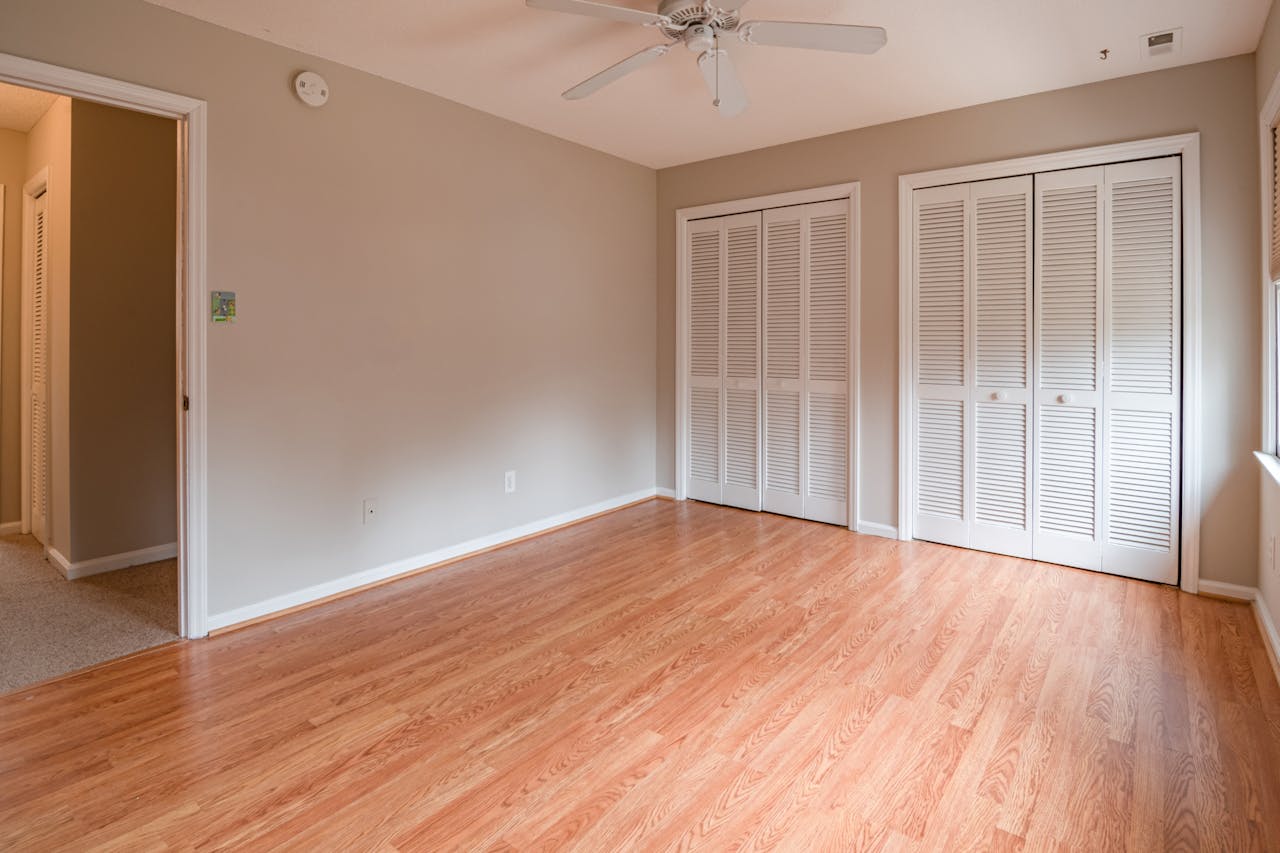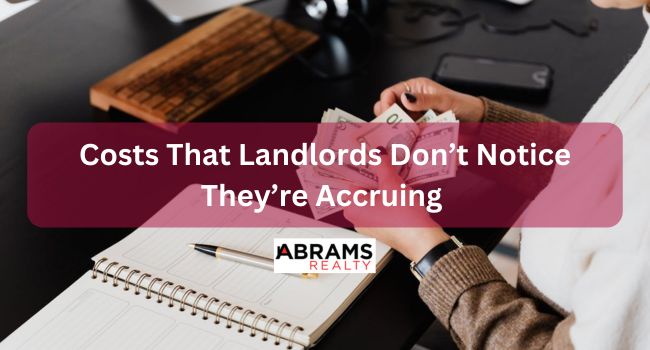Key Takeaways
- Neglected Maintenance Can Lead to Major Expenses: Delaying routine maintenance, such as roof repairs or HVAC servicing, can result in costly emergency repairs and tenant dissatisfaction.
- Legal Oversights May Result in Significant Costs: Failing to adhere to housing regulations or improperly handling evictions can lead to expensive legal fees and potential fines.
- Vacancy Losses Impact Profitability: Extended vacancy periods not only reduce rental income but also increase costs related to advertising and property upkeep.
- High Turnover Rates Increase Operational Costs: Frequent tenant turnover leads to additional expenses, including cleaning, repairs, and marketing for new tenants.
These points highlight the importance of proactive property management to maintain profitability.
Rental properties can be profitable, but hidden costs often eat away at your returns. These expenses aren’t always obvious but they build up gradually, reducing your income over time.
Whether you manage one unit or several, staying aware of where your money goes is key.
Below are commonly overlooked expenses and how to keep them in check according to the experts at Abrams Realty.
1. Underestimating Ongoing Maintenance Costs
Property maintenance is a known expense but it’s easy to underestimate just how much small, delayed tasks can add up over time.
Let’s say you postpone fixing a small roof leak. It may not seem urgent, but moisture can quickly lead to mold, rotted wood, and interior damage.
What could’ve been a $200 patch job becomes a $5,000 renovation.
Similarly, skipping seasonal HVAC servicing might save money upfront but result in system breakdowns during peak weather, leading to emergency repair fees.
Solution:
Schedule routine inspections with qualified professionals.
Build a preventative maintenance calendar for things like plumbing, HVAC, and roofing.
Invest in early detection tools, like leak sensors or smart thermostats, to catch issues before they worsen.
A proactive approach doesn’t just reduce repair costs, it helps retain tenants who value a well-maintained home.
2. Legal Fees From Poor Risk Management
Legal problems are one of the most expensive and avoidable pitfalls in rental property ownership.
From improper eviction filings to violations of housing regulations, small oversights can lead to court cases, fines, or settlements.

Many landlords, especially those managing their own properties, skip legal advice to save money.
Ironically, this decision can lead to significant legal fees down the road, especially when dealing with non-paying tenants or lease disputes.
Solution:
Consult a real estate attorney to review your lease templates and policies.
Stay updated on local landlord-tenant laws, which can vary dramatically between states or cities.
Invest in landlord insurance with legal coverage.
Use a clear and consistent screening process to reduce the risk of problem tenants.
Preventing a single legal conflict can save thousands in fees, not to mention the time and emotional energy involved.
3. Accepting Problematic Tenants
Extended vacancies can tempt landlords to relax their tenant screening process. Rushing into a lease with someone who hasn’t been fully vetted is risky and often expensive.
Problematic tenants can skip rent, damage property, or create legal disputes with neighbors. Even if you eventually evict them, you may be left with a trashed unit, lost rent, and a lengthy turnover period.
Solution:
Stick to a rigorous screening protocol, such as credit checks, landlord references, employment verification.
Don’t skip the in-person (or virtual) interview to get a better feel for the applicant.
Consider using a third-party tenant screening service to avoid bias and ensure compliance with the Fair Housing Act.
4. The True Cost of Vacancy
Vacant properties may not feel expensive at first, but the longer a unit sits empty, the more those silent costs begin to mount.

While you're not collecting rent, you're still covering HOA fees, taxes, and insurance. You’ll also likely spend on cleaning and marketing costs. Each month without a tenant slowly erodes your annual income.
Solution:
Build a vacancy reserve fund to offset expenses during turnover.
Keep your rental competitive by monitoring local market rates and adjusting as needed.
Consider short-term lease flexibility or incentives to attract tenants during off-peak seasons.
Maintain good relationships with current tenants to reduce turnover in the first place.
Even a single additional month of rent per year can significantly improve your annual return on investment.
5. Overpaying for Vendor and Contractor Services
Every landlord relies on vendors, such as plumbers, electricians, handymen, but not all vendor relationships are created equal.
You may be overpaying simply because you haven't shopped around or negotiated terms.
In emergencies, landlords often hire whoever is available, which can mean premium rates or unreliable work that needs redoing.
Solution:
Build a trusted network of vendors through referrals or property management partners.
Negotiate service contracts or volume discounts in advance, especially if you own multiple units.
Vet new vendors with background checks and reviews, and always compare quotes.
Track vendor performance and costs over time to assess ROI.
Loyal vendor relationships can not only save money but ensure priority service when urgent needs arise.

6. Administrative Time and Errors
Landlords often underestimate the administrative side of the business: managing leases, bookkeeping, taxes, compliance, and communication.
When done manually or inconsistently, these tasks don’t just eat up time but they can lead to costly mistakes.
Missed rent payments, inaccurate tax filings, or losing track of lease terms can each become expensive problems.
FREE Property Management Consultation!
Solution:
Use property management software to automate rent collection, lease renewals, and expense tracking.
Set up automated reminders for deadlines like property taxes or maintenance checks.
Hire part-time admin help or a virtual assistant to streamline day-to-day management.
Time is money. Spending hours on manual tasks distracts you from higher-value activities like acquiring new properties.
The Case for Property Management
While self-managing seems like a cost-saving approach, many landlords find they lose more money in inefficiencies than they would have spent on a professional manager.
A good property management company brings:
Vendor discounts from pre-negotiated rates
Faster leasing, advertising, and marketing processes
Tighter legal compliance
Better tenant screening systems
Hands-off maintenance coordination
If you're juggling multiple units or find yourself constantly “putting out fires,” a property manager could protect your investment while preserving your sanity.
Bottom Line
The real danger of hidden costs is that they’re easy to ignore, until it’s too late.
By being intentional with inspections, vendor relationships, legal processes, and administrative systems, you can drastically reduce unnecessary spending and increase your rental income.
Every dollar you save is a dollar earned. And over time, cutting these unnoticed costs can mean the difference between a struggling property and a thriving rental business.
Ready to make your rental business more efficient and profitable? Contact Abrams Realty today!


